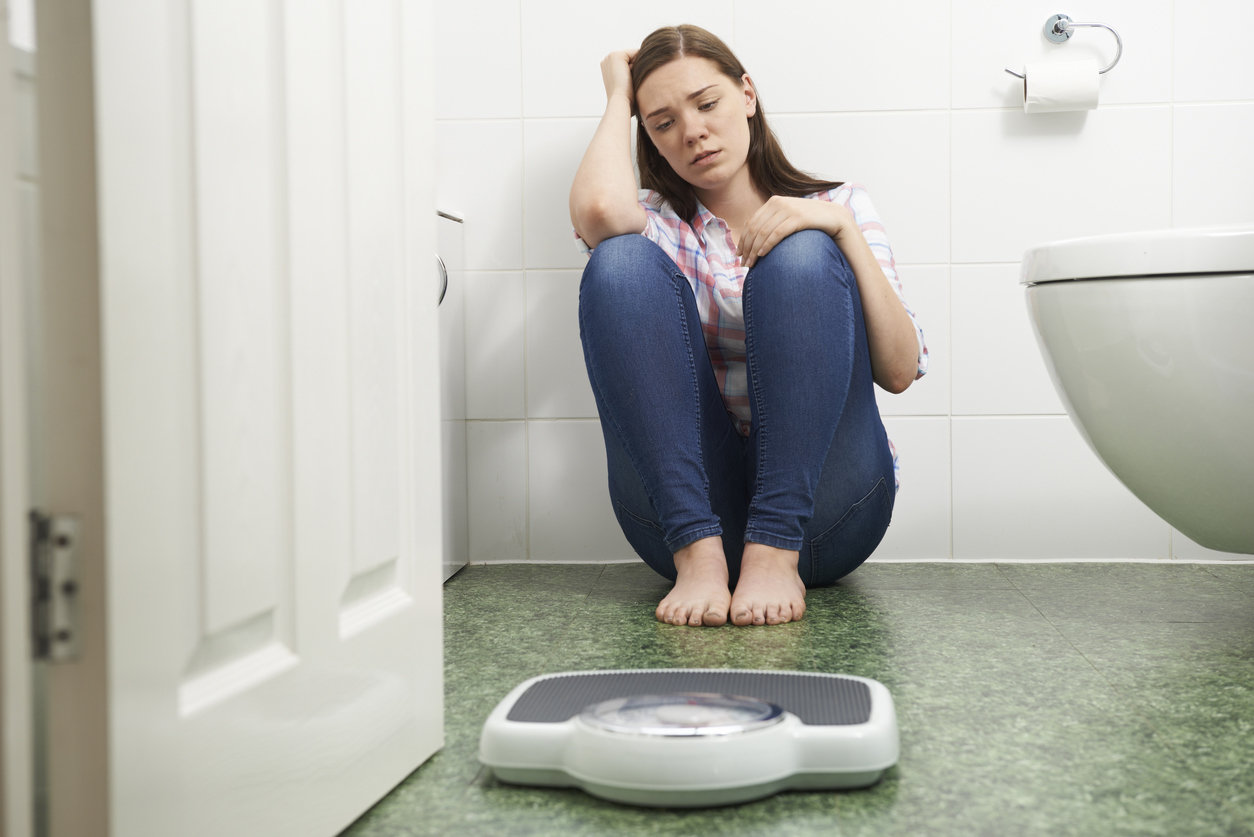Beth Skwarecki, a staff writer at Lifehacker, is practicing the 5:2 Diet. The premise is simple: She eats normally five days per week, and "fasts" for two days by restricting herself to 500 calories. So, for instance, on one fasting day, she ate green beans, a Clif bar, and a homemade sous vide egg bite.
The United Kingdom-based diet plan is popular because it isn't as restrictive as other diets, according to Skwarecki. For instance, the Whole30 Diet asks dieters to eliminate all grains, legumes, dairy, and foods deemed "psychologically unhealthy," like smoothies, for 30 days.
The 5:2 Diet, however, employs "intermittent fasting" with the promise of a "longer, healthier life."
"Since you are only fasting for two days of your choice each week, and eating normally on the other five days, there is always something new and tasty on the near horizon," the 5:2 Diet's website explains. "In short, it’s easy to comply with a regime that only asks you to restrict your calorie intake occasionally. It re-calibrates the diet equation, and stacks the odds in your favor."
No matter how mild the 5:2 Diet is purported to be, however, it is as dangerous as all fad diets.
At its core, the 5:2 Diet uses the baseline assumption that on an average day, men need 2,400 calories and women need 2,000 calories. Fast days then require participants to eat 25% of the calories, so 600 calories for men and 500 calories for women.

Bridget Hastings, coordinator of nutrition services for Walden Behavioral Care in Connecticut, said the 5:2 Diet's premise is flawed.
"Caloric intake is based on someone's age, weight, height, biological sex, and then also their activity level," she told Revelist. "[Activity level is] the one that ranges the most because you can have someone who's on a sports team or works out a ton and you can have someone who's walking and doing light weightlifting. So, there's a whole range of caloric needs per person and lot of factors that play a part in that."
The 5:2 Diet doesn't account for those variable factors. Instead, it presupposes that all men and women — regardless of activity level, age, and weight — can survive on 2,000 or 2,400 calories.
Yet, encouraging under-eating appears to be the 5:2 Diet's schtick, as Skwarecki highlighted in Lifehacker.

"Alternate-day fasting works as well for weight loss as traditional diets, according to studies like this one published in 'Obesity,'" she wrote. "But it works better for some people than others, and researchers are trying to figure that out, too. One trial published in "Obesity Research and Clinical Practice" found that white people and older people were more successful on the diet, but there were tons of factors they didn’t account for, like whether some groups had better access to healthy foods."
There are numerous ways to improve health that don't require restriction. In fact, such extreme restriction doesn't improve health over time, as Hastings noted.
"By no means is [500 or 600 calories] enough to maintain all the processes that our bodies need to do throughout the day," she said. "What happens is if somebody eats on a low-range calorie diet is they eat those few calories, so their metabolism slows down. When they go back to eating how they normally do, it's easier to gain weight. That's the basic metabolic science behind it."
Furthermore, most of the weight lost through fad diets is "water weight," according to Hastings.
"It's important to note that you can lose weight quickly, but a lot of it is water weight," she said. "The most important thing is when you go back to your normal eating patterns — because no one can live on 500 calories a day — it's very easy to gain weight."
Fad diets also don't encourage participants to adopt habits that sustain weight loss.
"The 5:2 Diet, the Atkins Diet, or any fasting diet is not sustainable," Hastings said. "You can't keep eating like that. [Fad diets] don't teach you how to have balanced meals or fun meals or it's OK to eat higher-calorie foods sometimes or about exercise. They don't drag in any of that."
Beyond these glaring flaws, the most dangerous aspect of the 5:2 Diet is its encouragement of disordered eating.

Skwarecki wrote that she gets a little hungrier after a fast, but she hasn't pigged out. All dieters aren't as fortunate. Claire Mysko, CEO and president of the National Eating Disorders Association, told Revelist that 35% of "normal dieters" progress to disordered eating. Of that 35%, between 20% and 25% develop eating disorders.
"As far as I can tell, the 5:2 fast is another misguided fad diet with potentially life-threatening consequences," Mysko said. "The rigidity and drastic calorie restriction promoted in the '5:2 Fast Diet' are certainly reminiscent of the kind of 'diets' I've seen circulated in pro-eating disorders communities and I would not recommend anyone engage in these kinds of behaviors," she said.
Hastings agreed. She said that all people on the 5:2 Diet won't develop an eating disorder, but it does encourage disordered eating.
"On those two days when you're restricting, you're going to have hunger cues," she said. "You're going to feel physically hungry. By ignoring those cues, you're not really moving with your biology and the way that your body is working."
Fasting might also encourage binging or overeating because the body needs nutrients to sustain itself.
"When you start eating on the first day of the next five-daycycle, you might be eating quicker, making high-carb, high-sugar choices because you've basically starved yourself for two days," she said. "That's not how humans are supposed to eat."
Skwarecki argued that success on the 5:2 Diet is determined by the willpower to handle and withstand hunger. However, eating shouldn't be a testament to the human spirit.

"The research around fasting diets or the 5:2 Diet is not strong enough to indicate that it’s helpful for the human body," Hastings said. "If someone wants to change their eating habits, it would definitely be recommended to speak with a registered dietician, someone who went to school for nutrition, and someone who's actually accredited. That individual will be able to teach them healthy eating patterns. They'll be able to help them in a healthy way that won’t lead to an eating disorder or another metabolic effect."
There's nothing wrong with wanting to lead a healthier life. Fad diets, including the 5:2 Diet, isn't a means of achieving health-related goals.
Revelist has reached out to the creators of the 5:2 Diet for comment.




